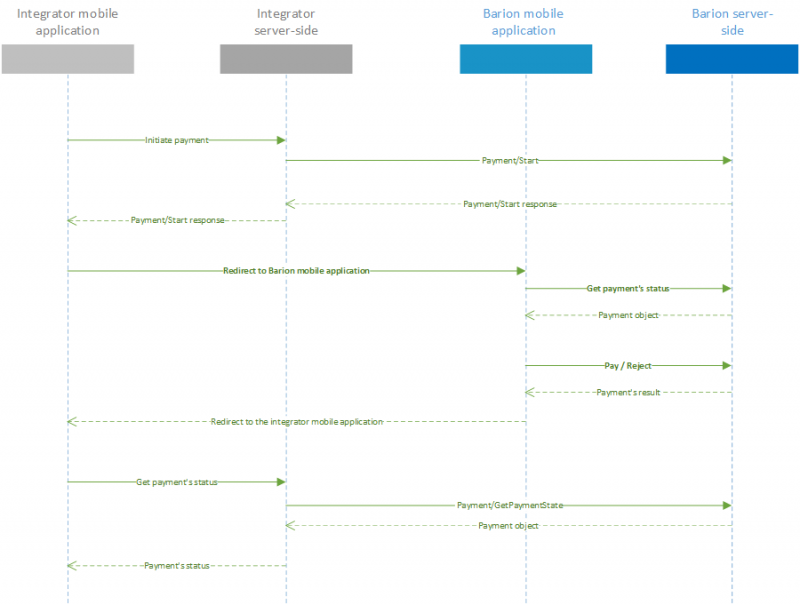App2App payment: Difference between revisions
Jump to navigation
Jump to search
No edit summary |
No edit summary |
||
| Line 1: | Line 1: | ||
{{PageTitle|title= Barion App2App Payment}} | |||
__NOTOC__ | __NOTOC__ | ||
Barion App2App Payment makes it possible to easily pay with Barion balance or credit card through [[Getting_started|Barion Smart Gateway]] and purchase any goods/services in the integration applications. | Barion App2App Payment makes it possible to easily pay with Barion balance or credit card through [[Getting_started|Barion Smart Gateway]] and purchase any goods/services in the integration applications. | ||
Revision as of 09:55, 8 February 2019
Barion App2App Payment
Barion App2App Payment makes it possible to easily pay with Barion balance or credit card through Barion Smart Gateway and purchase any goods/services in the integration applications. .
Payment is initiated by an application. There are two ways to pay:
- If the Barion mobile application is available on the mobile device (iOS, Android) the customer will pay in the Barion mobile app. In order to use the Barion mobile app, the customer must have an activated Barion wallet.
- If the Barion mobile application isn't available on the mobile device the payment is made on Barion's responsive website, just like for web payment. The website is accessible on every platform and customers don't have to have Barion wallet.
The documentation below shows the integration processes.
Before you start to integrate we recommend reading this description.
Integration possibilities
You can integrate Barion Smart Gateway into mobile apps in three ways:
- With your own server-side
- In this case, the mobile application doesn't communicate directly with the Barion system.
- On your server-side you can use for example our PHP Library, you can find it on Barion's Github page
- With Barion Mobile Library
- In this case, your mobile application will communicate with the Barion System through our Barion Mobile Library.
- You can find Android and iOS libraries on Barion's GitHub page
- Totally native implementation (we don't recommend it)
- In this case, your mobile application will communicate directly with the Barion System and you need to implement everything on your own.
In all cases, it is highly recommended to obfuscate client applications! We recommend using ProGuard or DexGuard.
You can see the integration possibilities pros and cons in this table:
Integration descriptions
 |
 |
